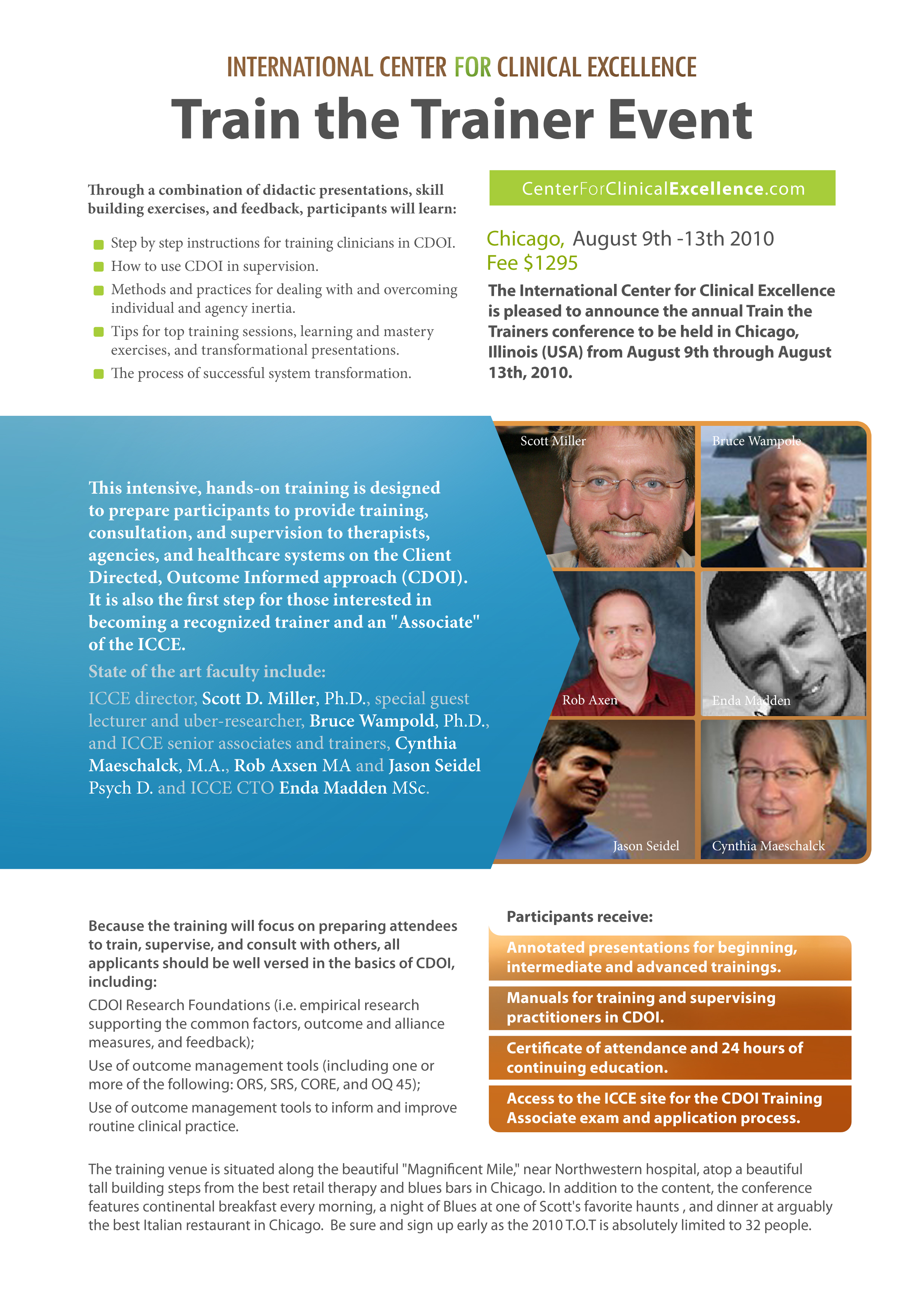Today I’m teaching in Christchurch, New Zealand. For the last two days, I’ve been in Nelson, a picturesque coastal town opposite Abel Tasman, working with the local DHB (District Health Board). If you’ve never visited, make a point of adding the country to your list of top travel destinations. The landscape and the people are second to none. (In Nelson, be sure and visit The Swedish Bakery. My 8-year old son, Michael, unequivocally states it has the best hot chocolate in the world—and, believe me, he’s an expert).

I’ve been traveling to New Zealand at least once a year for the last several years to provide training on using outcomes to inform behavioral healthcare. Interest is keen and providers and managers are working hard to deliver top-notch services. However, like many other places around the globe, economic factors are taking a toll. On the day I arrived, one of the lead stories in the local paper (The Nelson Mail) focused on the economic crisis in healthcare. “Complaints about money, shortages, overwork, stress and unsympathetic management…in the always-stretched hospital service,” the story began, “[indicate] a rapidly worsening situation” (p. 5, News Extra). Today, the headline of an article in section A5 of The Press Christchurch warns, “Health Ministry staff brace for job losses.”
A little over two weeks ago, I was in Richmond, Virginia working with managers and providers of public behavioral health agencies. There too, economic problems loom large. Over the last two years, for example, agencies have had to absorb across-the-board, double-digit cuts in funding. The result, in many instances, has been layoffs and the elimination of services and programs—with a few prominent exceptions.
On March 5th, I blogged about the crew at Chesterfield CSB in Virginia that were serving 70% more people than they did in 2007 despite there being no increase in available staff resources in the intervening period and, at the same time, decreasing clinician caseloads by nearly 30%. In January, I posted text and video about agencies in Ohio that had managed to improve outcome, retention, and productivity at the same time that cutbacks had forced the furlough of staff! The common denominator in both instances is outcomes; that is, measuring the “fit and effect” of treatment on an ongoing basis and then using the data in consultation with consumers to improve service delivery.
If you’re not yet convinced, I have one more example to add to the mix: the “Home for Good” program. Vision, commitment, and drive are words that best capture the management and staff who work at this Richmond, Virginia-based in-home behavioral health services program. Some might question the wisdom of starting a private, primarily Medicaid-funded treatment program in the worst economic climate since the Great Depression. A commitment to helping families keep their children at home—preventing placement in residential treatment centers, foster care, and detention—is what drove founder and director Kathy Levenston to take up the challenge. The key to their success says Kathy is that “we take responsibility for the results.” As in Ohio and Chesterfield, Kathy and her crew routinely monitor the alliance and results of the work they do and then use the data to enhance retention and outcome. Listen to Kathy as she describes the “Home for Good” program. I’m sure her story will inspire you to push for excellence whatever the “shoestring” budget you may be surviving on at the moment.

